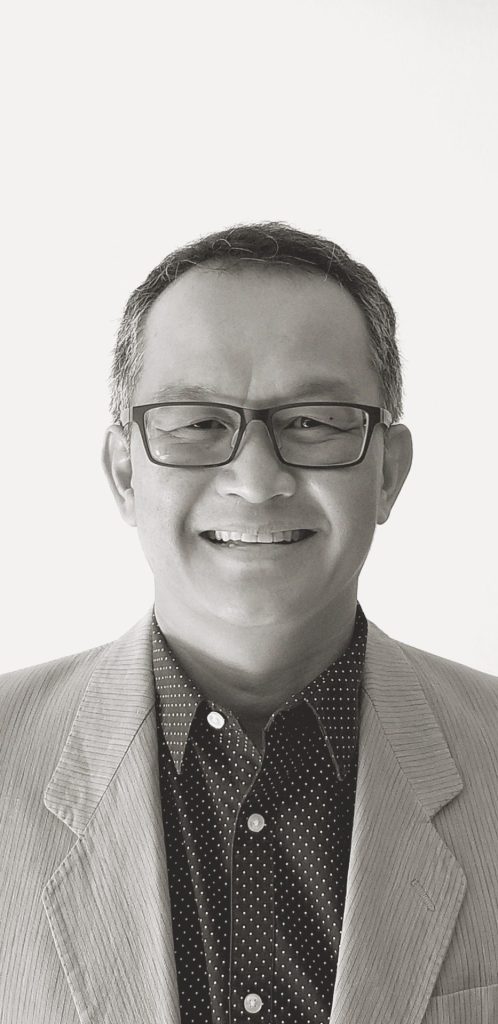Ratanawaraha, Apiwat
VISITOR’S VOICE
Interview with Apiwat Ratanawaraha »

What are your favorite things?
✔ Playing and watching tennis and volleyball: I feel alive.
✔ Reading and watching science fiction: I feel alert.
✔ Walking in Kyoto in spring and the fall: I feel peaceful.
Interview
Imagining Sustainable and Just Urban Transitions
01
Please tell us about your research.
My research questions often come from my direct, personal experience in everyday life and regular travel in Thailand. Observing how things are changing around me, I try to make sense of the changes and to imagine alternative pictures in which things are better. For instance, I used to spend a couple of hours every day commuting between home and work on motorcycle taxis and passenger vans. Feeling stressed and frustrated from getting stuck in the traffic for hours and having experienced a couple of accidents on the road, I decided to conduct research on these topics and to engage in policy advocacy work that aimed to improve the situations.
Another example of urban change that prompted my research is the transformation in my own neighborhood in Bangkok. Fifteen years ago, I was still able to see the horizon from the rooftop of my townhouse. Now my house is surrounded by high-rise condominiums and offices. Many of the mom-and-pop shops in the neighborhood have disappeared, gentrified by convenience stores, coffeeshops, and hotels. Many street vendors are gone. Meanwhile, one of my neighbors orders food via mobile applications almost daily.
My current book project on urban transitions in Thailand will be a synthesis of findings from ongoing and previous research projects that I have conducted related to the above changes. The book will also include my personal reflection from everyday life as well as direct involvement in the policymaking and politics of urban planning and development in the country. My hope is that this book will generate further dialogue and debate among scholars and practitioners in related fields not only in Thailand, but also other countries in Asia and beyond.
02
Can you share with us an episode about any influential people, things, and places you have encountered whilst doing your research?
As part of my research project on urban life in Thailand, our team talked to a local fisherman who raised concerns about a city government’s initiative to turn a local pond into a public park. He was afraid that he would no longer be allowed to catch fish and to forage for food in the pond area. His concern made us realize that even a supposedly benign and well-intentioned initiative to create “consumption commons” such as a public park could have a negative impact on some people who use the space as “production commons.” The story informed us that gentrification could happen in various forms and in various places.
03
How do you overcome the difficulties in putting together the results of your research into a research paper or book?
The main difficulty for me is usually lacking an extended period of free time to clear my mind. One solution is to take a sabbatical leave when I can focus on writing my books. In fact, my time at CSEAS is part of my sabbatical leave. Another solution is to work with collaborators, who can help fill in the gaps and push each other to finish the manuscript.
04
Do you have any must-have gear for field research and writing?
A brain that is open to new information and ideas and a heart that can feel pain and joy.
05
Do you have any essential reads (books) that you can recommend to younger people?
I recommend Shel Silverstein’s “The Missing Piece” and “The Missing Piece Meets the Big O.”
06
What is your ideal image of a researcher, and do you have any advice for those who aim to become researchers?
My advice: Look around. Listen carefully. Don’t be shy. Have fun. Be patient. Avoid becoming the Head of Department.
07
What are your future ambitions as a scholar?
I would love to improve my ability in creative writing. I’ve published a number of academic articles and books, but my ambition is to write something creatively, perhaps a fiction novel inspired by the events, places, and people that I have encountered as a researcher.
(March 2023)
Apiwat Ratanawaraha is a Visiting Research Scholar of CSEAS
from March – May 2023
Thank you for taking the time to read the Visitor’s Voice interview.
Your feedback is important to us, so please let us know what you think.